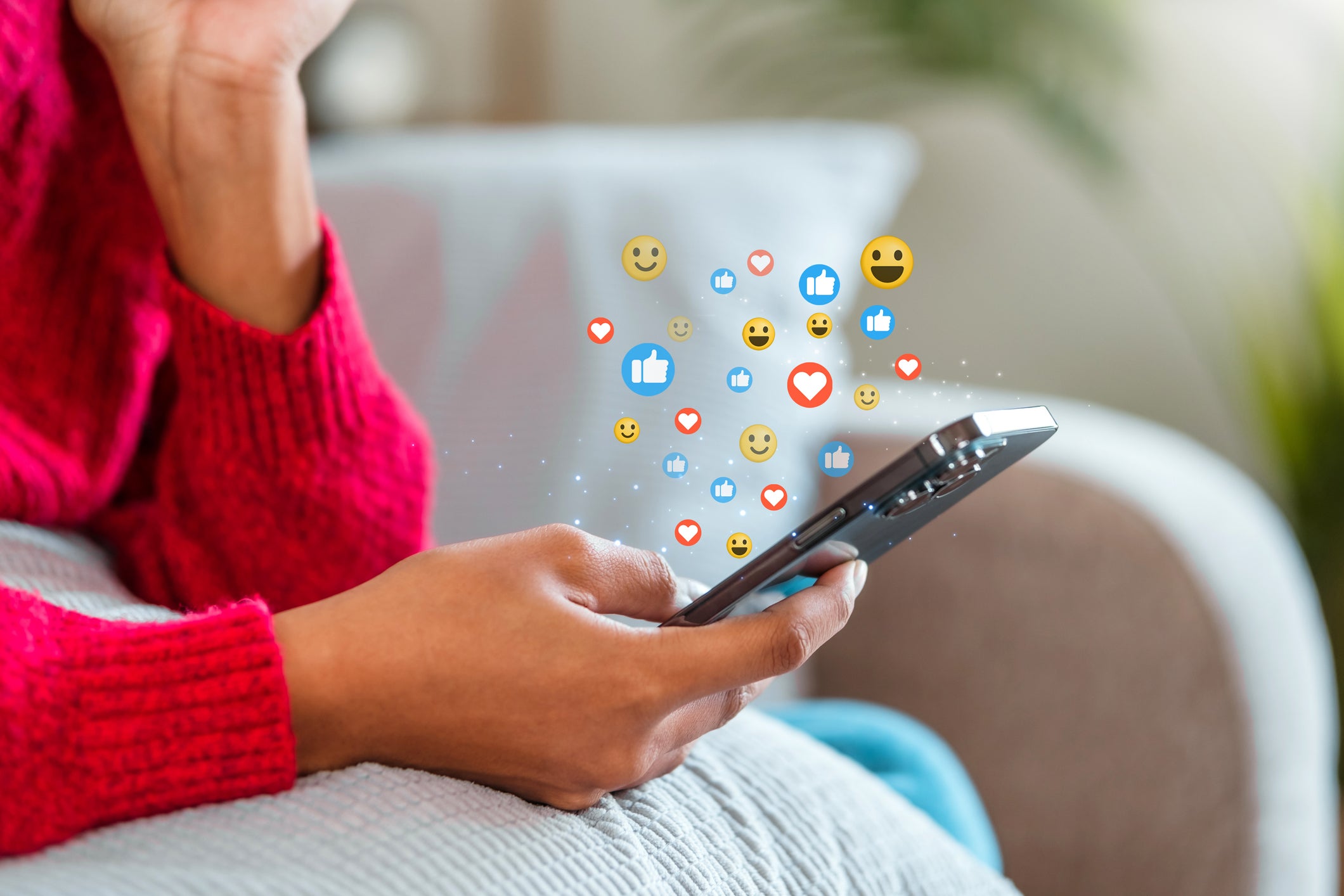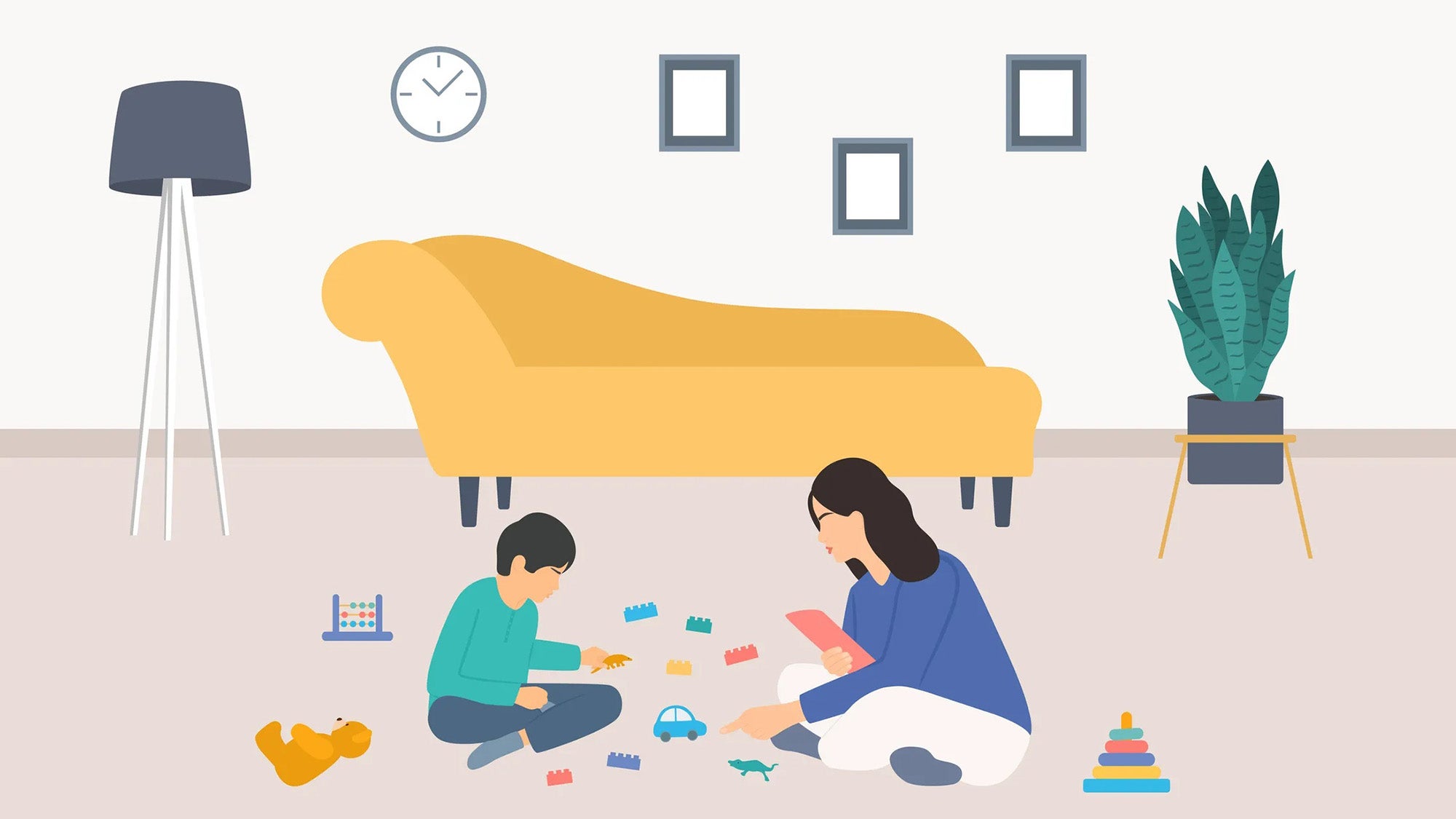As social media continues to rapidly evolve, so do questions about how it impacts health and well-being. Laura Marciano, a former research associate in the Department of Social and Behavioral Sciences at Harvard T.H. Chan School of Public Health, shares what current research tells us about how to use social media healthfully, and what we need to find out next. (Marciano is now faculty at Indiana University Bloomington and continues to collaborate with researchers at Harvard Chan School.)
Q: What does the current body of evidence tell us about how social media affects health and well-being?
A: Research has shown that social media can both promote and hinder well-being. On one hand, social media can provide spaces for connection, identity formation, solidarity, and social support. On the other hand, loneliness is on the rise, and reliance on text-based communication—without the richness of voice, facial expressions, or presence—can reduce the quality of our connections. We’ve also seen that social media can encourage social comparison, which can exacerbate anxiety and depression, especially among young people. And it’s worth noting that screen time equals sedentary time, which we know doesn’t contribute to good physical or mental health.
That said, social media’s effects on well-being thus far observed—including by my research—are often small and depend on many personal factors, as well as the type(s) of social media used. There’s a lot more research we need to conduct, especially concerning how social media usage can promote rather than diminish well-being. For now, I hold a balanced view of the positive and negative health impacts of social media, and I would challenge the myth that it’s inevitably toxic. The risks are very real, but in focusing on those we overlook social media’s potential as a tool for community building, skills development, and self-expression.
Q: How can people use social media as a tool to enhance well-being?
A: It mostly comes down to being intentional and active. Some good tips are to:
- Check in with yourself: Regularly consider your social media usage and ask yourself, “Am I using this for connection or just out of habit? Is this adding to my day, or taking away from it?”
- Keep perspective: Social media should be seen as one of the many daily activities that help us reach our goals and stay connected. The key is to keep it in balance with other activities that also promote our well-being—especially during adolescence.
- Curate your feeds: Follow accounts that inspire or foster connection. Unfollow those that trigger stress and social comparison. Research shows that content and context matter more than total time spent on social media. For example, watching endless beauty tutorials might harm body image, but watching a cooking tutorial might help you learn new skills and foster self-efficacy.
- Set boundaries: Use app timers, disable notifications, and create phone-free routines, especially around bedtime.
- Remember that nothing replaces getting together in person: There are human elements to interactions—tone of voice, physical presence, and touch—that technology can’t replace and that are essential to our well-being on a biological level.
For teens, especially those vulnerable to depression, it’s important to recognize when using social media starts creating negative feedback loops, and to seek offline support. For parents, grandparents, and other caregivers, it’s important to recognize that today’s reality—especially for young people—is a hybrid of offline and online life. Understanding this blended social world is key to supporting teens’ health and well-being. Engaging in social media alongside them and fostering open communication about online experiences can help young people feel guided without feeling surveilled.
Q: What structural changes may help people maintain healthy relationships with social media?
A: There are many efforts that policymakers, researchers, and social media companies could partner on to help platforms reach their full prosocial potential.

One is ensuring that platforms offer features that promote solidarity and presence, rather than endless consumption. Social media’s effects on the brain—and the idea of social media “addiction”—are debated, but it’s likely that features like infinite scroll, push notifications, and algorithmic feeds can exploit reward and habit formation pathways, thus leading many users to experience compulsive, hard-to-control behaviors. Redesigning platforms around the idea of connection, rather than consumption, could have huge benefits.
Another effort is for social media companies to share usage and design data with researchers. This would enable us to conduct the most rigorous research into social media and well-being, to truly understand the relationship and generate the evidence needed to build platforms that are better from a public health perspective.
At the same time, schools can play a vital role in equipping young people to live well in a world where digital saturation is the norm. Just as we teach skills like reading, math, or critical thinking, we need to embed digital literacy, media evaluation, and self-regulation into the curriculum. Schools are uniquely positioned to provide structured opportunities to practice healthy online behaviors—whether that’s learning how to critically assess online information, managing screen time, or using social media platforms for collaboration, creativity, and prosocial engagement. This isn’t only about reducing harm, but about empowering students to thrive in a connected world: knowing when digital tools enhance learning and well-being, and when unplugging is necessary for rest, focus, or in-person connection.
Q: What are some of today’s most pressing research questions around social media and well-being?
A: We should really focus on if and how our social relationships are changing as a result of social media usage. We know how crucial relationships are to our health and well-being, to the extent that loneliness can increase the risk for premature death more than alcohol consumption, cigarette smoking, obesity, or air pollution. So it’s really important for us to understand how our relationships benefit us, or not, in the context of so many people living online. I’m intent on researching this question by looking at biomarkers of health, such as cortisol and oxytocin, and their connections with digital behavior.
We should also study how our relationships are changing in the context of artificial intelligence (AI). We need to understand how people, particularly teens, perceive AI-based relationships. Will they feel connected to AI chatbots—which have already been introduced to several social media platforms—in the same way they do to peers? What are the implications of interacting with AI agents and subsequent effects on well-being? Will AI support prosocial behaviors or replace socially relevant connections? These are urgent, open questions.



